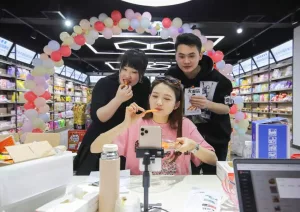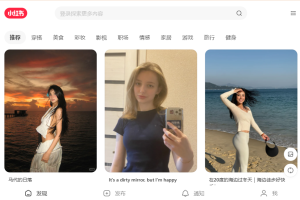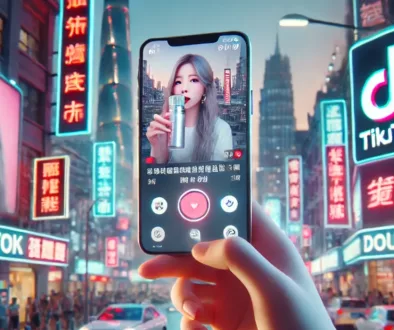“Grassroots KOLs”: Everyday Micro-Influencers
Influencer marketing in China has undergone a significant transformation in recent years, shifting from collaborations with celebrities to the engagement of micro-influencers, also known as Grassroots KOLs (Key Opinion Leaders). These individuals, while less famous, are playing an increasingly central role in brands’ marketing strategies. This evolution raises an important question: why are these everyday micro-influencers now perceived as more influential than traditional celebrities?
Authenticity at the Heart of Influence
One of the main reasons for the effectiveness of micro-influencers lies in their authenticity. Unlike celebrities, who are often perceived as distant from consumers’ daily lives, micro-influencers share genuine experiences and honest opinions about products or services they actually use. This closeness creates a relationship of trust with their audience, making their recommendations more credible and impactful. For example, on platforms like Xiaohongshu (Little Red Book), 73% of users are micro-influencers, sharing honest and detailed reviews on various products, which strengthens consumer confidence in these recommendations.

This authenticity is particularly valued in a context where consumers are increasingly skeptical of traditional advertising. Micro-influencers, as ordinary people sharing their daily experiences, offer a more relatable and honest perspective, making them more accessible and trustworthy in the eyes of their audience.
Higher Engagement Rates
Although their audiences are smaller, micro-influencers can often generate higher engagement rates than celebrities. Their community, while less extensive, is generally more active and receptive to their messages. This increased interaction translates into better organic reach and a deeper influence on purchasing decisions. For example, a study has shown that micro-influencers on Xiaohongshu, with engaged communities, have a significant impact on their followers’ purchasing decisions.
This ability to generate high engagement is crucial for brands, as it often results in higher conversion rates and increased customer loyalty. Regular interactions between micro-influencers and their audience foster trust and loyalty, which can lead to more effective promotion of products or services.

The Power of Niche Audiences
Micro-influencers excel in specific fields, allowing them to reach targeted audiences with particular interests. This specialization offers brands the opportunity to communicate more precisely and relevantly, increasing the effectiveness of their marketing campaigns. For instance, on Xiaohongshu, micro-influencers often focus on niches such as beauty, fashion, or fitness, providing brands with an ideal platform to engage with specific market segments.

This ability to target specific niches is particularly beneficial for brands seeking to reach precise market segments. By collaborating with specialized micro-influencers, companies can tailor their marketing messages to meet the specific needs and preferences of these audiences, increasing the relevance and effectiveness of their campaigns.
A Cost-Effective Investment
Collaborating with micro-influencers is generally more economical than partnering with celebrities. This approach allows brands, particularly small and medium-sized enterprises, to maximize their return on investment while benefiting from authentic and targeted promotion. For example, on platforms like Douyin (the Chinese version of TikTok), micro-influencers offer brands increased visibility without requiring expensive marketing budgets.
This cost-effectiveness is particularly important in a context where marketing budgets may be limited. By collaborating with micro-influencers, brands can effectively reach their target audience without incurring excessive expenses, which is essential for optimizing resources and maximizing the impact of marketing campaigns.
Who Are These Micro-Influencers in China?
Several Chinese micro-influencers have managed to successfully illustrate the effectiveness of this marketing approach, including:
• Li Ziqi – Originally from Sichuan province, Li Ziqi is known for her videos showcasing traditional Chinese culture and a rural lifestyle. She shares tutorials on cooking, crafts, and agriculture, captivating a large audience in China and internationally. Her authentic and aesthetic content has led to collaborations with various brands and the creation of her own product line.

• Papi Jiang – Comedian and video creator Papi Jiang is famous for her satirical takes on daily life in China. Her humor and ability to address sensitive topics lightly have earned her immense popularity on Chinese social media. She has partnered with several brands for advertising campaigns, using her influence to promote various products and services.

• Mr. Bags (Tao Liang) – Specializing in luxury handbags, Mr. Bags shares insights and reviews on the latest fashion trends. His expertise and influence in the fashion industry have led to collaborations with luxury brands such as Givenchy and Longchamp, for whom he has designed limited-edition collections.

These examples demonstrate how individuals, through their authenticity and expertise in specific niches, can become influential figures, sometimes surpassing the impact of traditional celebrities.
The Impact of Digital Platforms
Digital platforms play a key role in the success of micro-influencers in China. Apps like Xiaohongshu, Douyin, and Weibo have transformed how consumers interact with brands. These platforms allow users to discover new products through authentic recommendations based on the personal experiences of micro-influencers. Xiaohongshu, for example, is a platform where consumers, primarily young and urban, seek reviews and advice before making a purchase. The interactive nature of these platforms fosters stronger engagement, as users can comment, ask questions, and share their own experiences, further amplifying the impact of micro-influencers.

The rise of live streaming has also amplified the influence of Grassroots KOLs. In China, live commerce has become a booming industry, generating billions of yuan in sales. Micro-influencers leverage this technique to showcase products in real-time, answer consumer questions, and create a sense of urgency that encourages purchases. Douyin and Kuaishou, two of the most popular short-video platforms, have integrated live shopping features, enabling influencers to sell directly to consumers while maintaining an authentic connection with their audience.
Conclusion
Grassroots KOLs play an essential role in China’s current marketing landscape. Their authenticity, ability to engage specific communities, and financial accessibility make them valuable partners for brands looking to build deep and meaningful relationships with consumers. Unlike celebrities, who often address a broader but less engaged audience, micro-influencers create a direct bond with their followers, genuinely influencing their purchasing decisions.
The rise of social platforms and live commerce has strengthened their impact, offering brands new opportunities to reach their target audience in a more organic and effective way. As consumer trust becomes a key factor in marketing strategies, micro-influencers appear as the best alternative to traditional celebrity-led campaigns. Investing in Grassroots KOLs is no longer an option but a necessity for brands that want to make a name for themselves in the Chinese market.



